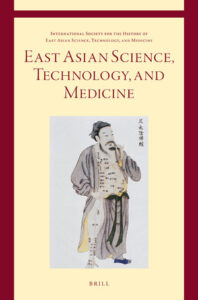
Hiro Fujimoto
East Asian Science, Technology and Medicine, 51/52, 2020, pp. 17–49
Abstract: Since the 1980s, the rise of local history scholarship has increasingly pushed historians of medicine of Japan’s Tokugawa period to examine how people dealt with sickness and disease in local communities. Scholars have shown that while local people benefitted from the rising number of village doctors, the shogunate and domains provided scant medical services. In part for this reason, the history of medical policy in the Tokugawa has been understudied, despite important initiatives by some domains to employ physicians and distribute drugs to save lives. Specifically, this article examines how the Akita domain was more actively engaged in medical policy than the shogunate or other domains, both in terms of ideology and administration. The Tenmei famine (1782-1788) sparked political reformation in Akita, leading newly educated officials to play a significant role in providing medical aid to the population, especially miners, as an act of benevolent government
About the author: Hiro Fujimoto was a HYI Visiting Fellow from 2016-17.
